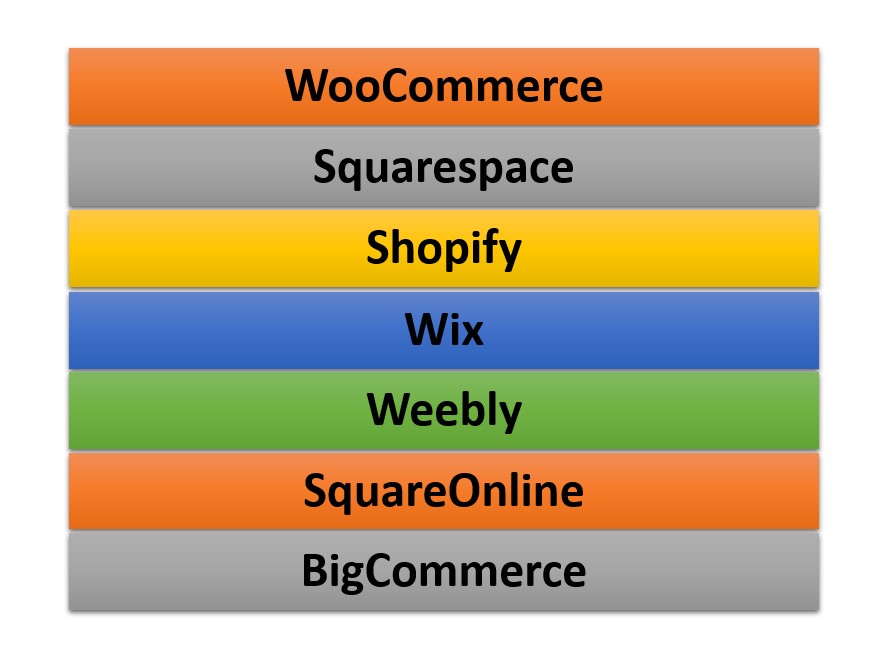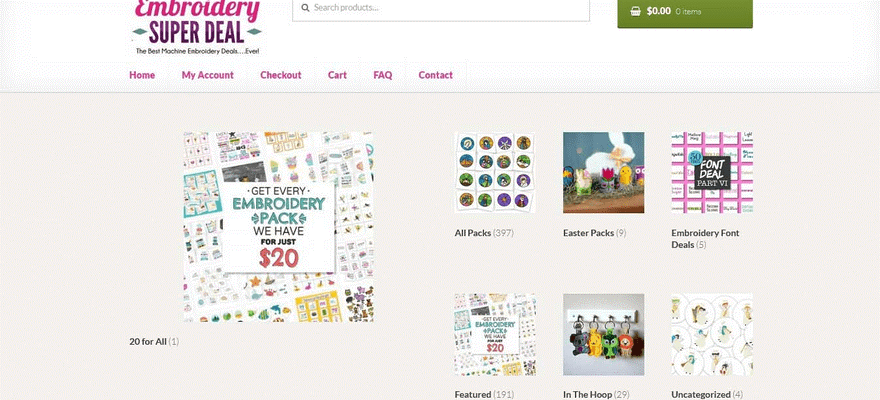E-commerce is the fastest-growing business field in 2024. A well-designed online store has the power to transform businesses.
However, you may reach a wider audience and boost sales with your small business by using the appropriate e-commerce tools.
Moreover, choosing the right platform impacts your sales, reach, and overall business growth.
However, not every system has the same features or customizable levels.
You can easily achieve your goals by choosing an e-commerce platform that is specifically designed to meet your needs.
Are you trying to figure out how to differentiate your small business?
Here, we discuss the best e-commerce platforms for small businesses.
Future of E-commerce in 2024
In 2024, there will be more opportunities for higher conversion rates, larger basket sizes, and online consumer involvement using AI marketing, as long as merchants have the appropriate digital know-how and quality control procedures in place.
On the other hand, e-commerce platforms require minimal investment. So, this is an attractive option for small businesses in 2024.
Why is e-commerce important?
Having an e-commerce business isn’t just a trend or a ‘nice to have’.
It can greatly affect your sales and earnings and is a crucial component of expanding your enterprises.
Furthermore, e-commerce companies are not going anywhere.
As how quickly the world is going online, they are more than a passing trend.
Research indicates that compared to four years earlier, online grocery orders had climbed by 22% in 2022.
Full automation of e-commerce warehouses is expected by 2029. The significance of e-commerce and the anticipated increase in online shopping behaviors are illustrated by these two data.
People often attribute this surge down to the pandemic when people were forced to shop digitally.
On the other hand, this trend has been evident for years; according to a Thinkwithgoogle analysis from 2021, 63% of all purchases begin online.
It’s crucial to emphasize that while 63% of all shopping situations do not end in an online purchase, it is the starting point of the journey.
Therefore, having an internet presence is essential; else, you risk losing out on valuable opportunities.
7 Top E-commerce Platforms for Small Businesses
Are you looking for the best e-commerce platform for small businesses.?
Here are the top websites, choose your desired one and start your business.
WooCommerce
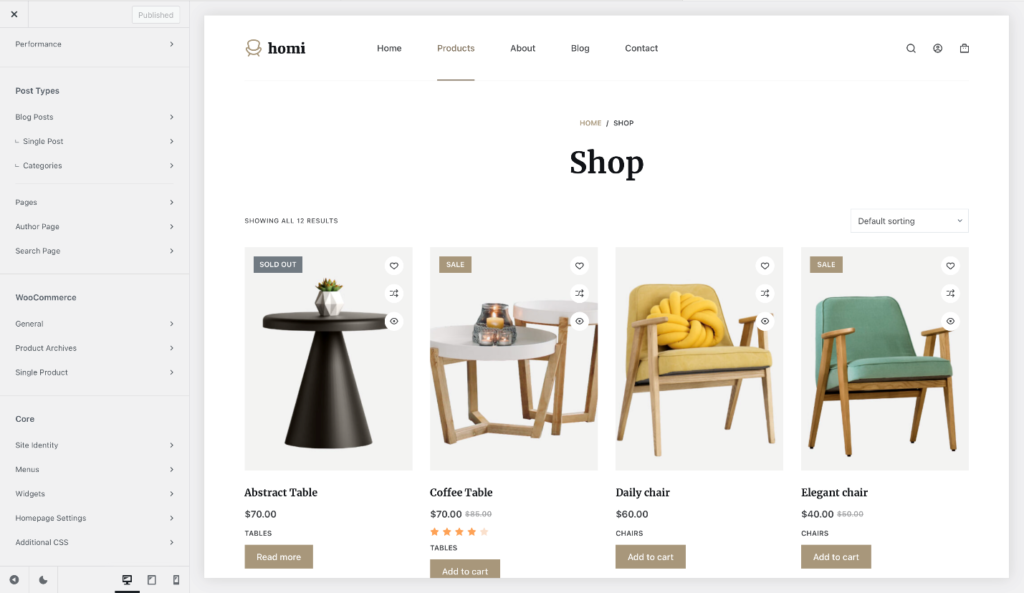
WooCommerce is a common, free, and open-source plugin that adds e-commerce functionalities to WordPress sites.
However, Woo Express, an all-in-one solution, allows you to forego those extra stages.
Business owners who desire more control over data and site modification than what Shopify or Squarespace provide will find this solution ideal.
It’s also a great choice for anyone who wants hosting, e-commerce, and payment processing all handled by one vendor. We adore WooCommerce and Woo Express because we can change inventory, examine sales data, and view orders from any location with the help of mobile apps. Artificial intelligence (AI) systems for creating product descriptions and marketing process automations can save time for time-pressed business owners.
Because all plans support an infinite number of products, WooCommerce is a great option for drop shippers and businesses with significant inventory, in contrast to Ecwid and Wix.
However, with limitless store manager accounts, you can grow your staff without changing to a different provider of e-commerce platform.

Expert Opinion
According to experts, store owners may sell their products with ease by using WooCommerce.
Currently, 28% of all e-commerce websites use it. It’s a terrific solution for organizations searching for a versatile and free (or economical) option for establishing an e-commerce platform.
Squarespace

Another choice for small businesses is Squarespace, which has an easy-to-use interface.
Squarespace offers reliable functionality, drag-and-drop capabilities, and templates for setting up an online business.
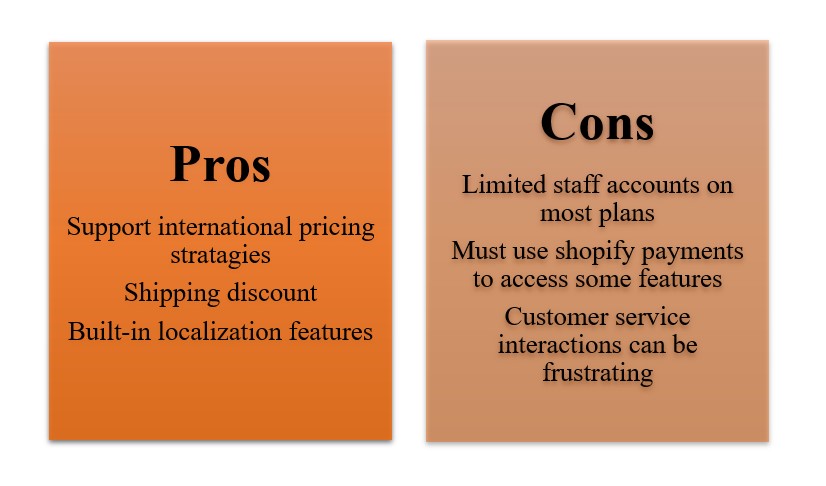
Shopify

Shopify is a great option if you’re searching for an e-commerce platform with lots of features. Because these features are largely plug-and-play, you can cater to worldwide audiences without searching with coding or customization.
Alternatively, you can concentrate on the marketing elements, and Shopify provides tools for market segmentation to assist you.
Furthermore, you can sell a wide range of products because you can upload and display an infinite number of physical or digital objects.
Shopify works with multiple third-party dropshipping companies, making this capability suitable for dropshippers as well.
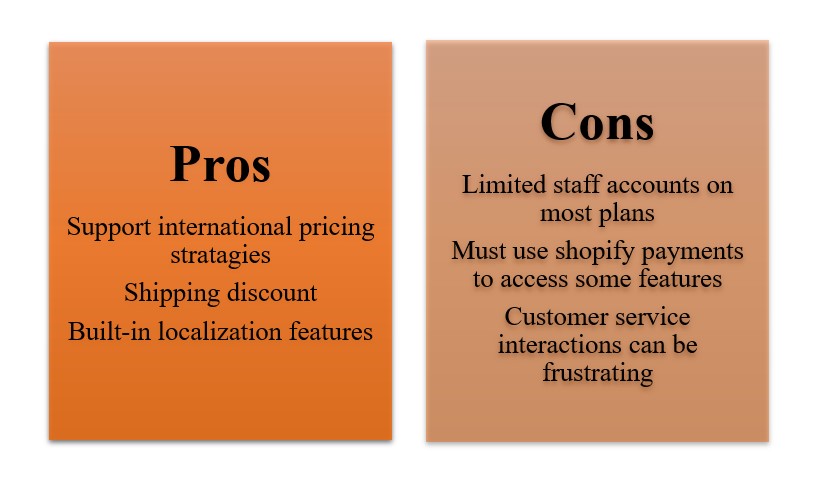
Wix
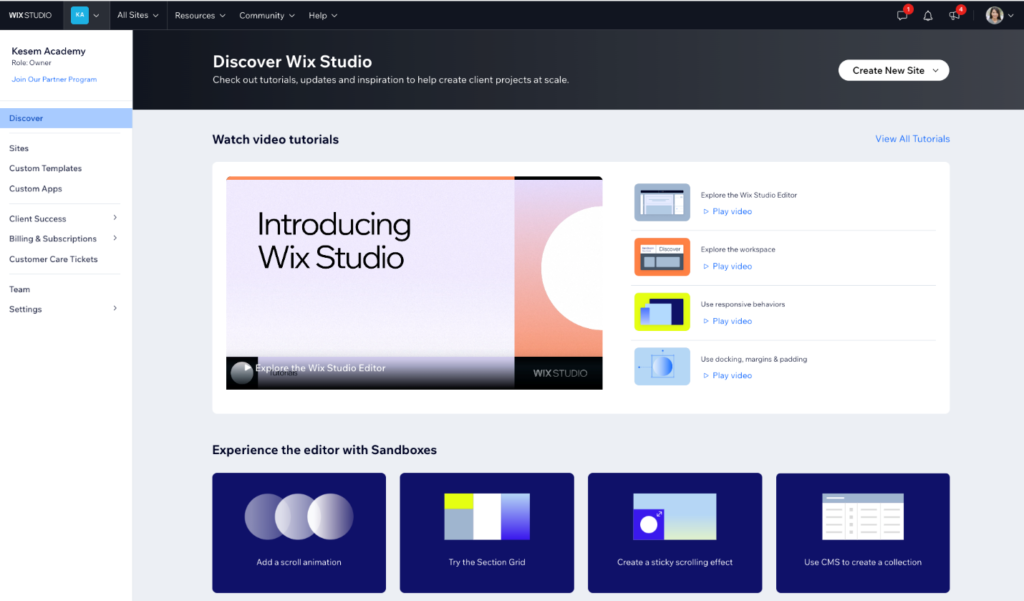
Wix is a small-business website builder with e-commerce-specific capabilities.
E-commerce features available in paid plans include multichannel selling, online payments, order monitoring, and abandoned cart marketing.
To track your e-commerce KPIs, you must subscribe to a subscription plan for analytics monitoring access.
There are over 500 templates available to pick from when constructing your storefront. You can alter the appearance and feel of your online store using the drag-and-drop interface.
However, wix allows dropshipping via third parties and subscription-based payment.
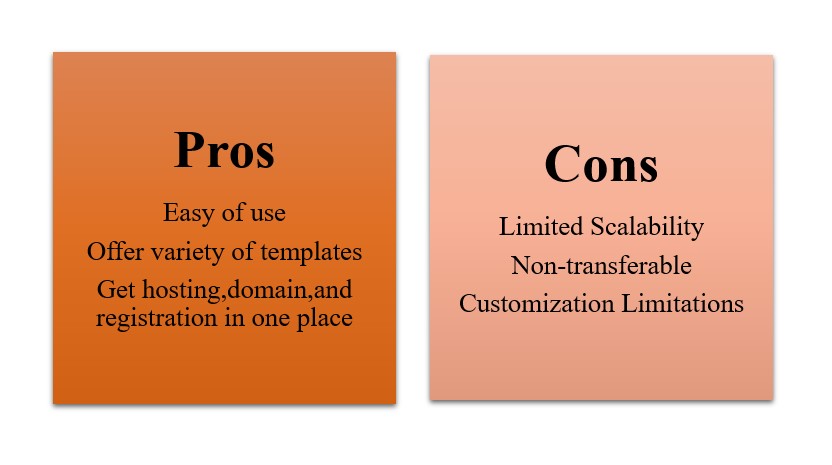
Weebly
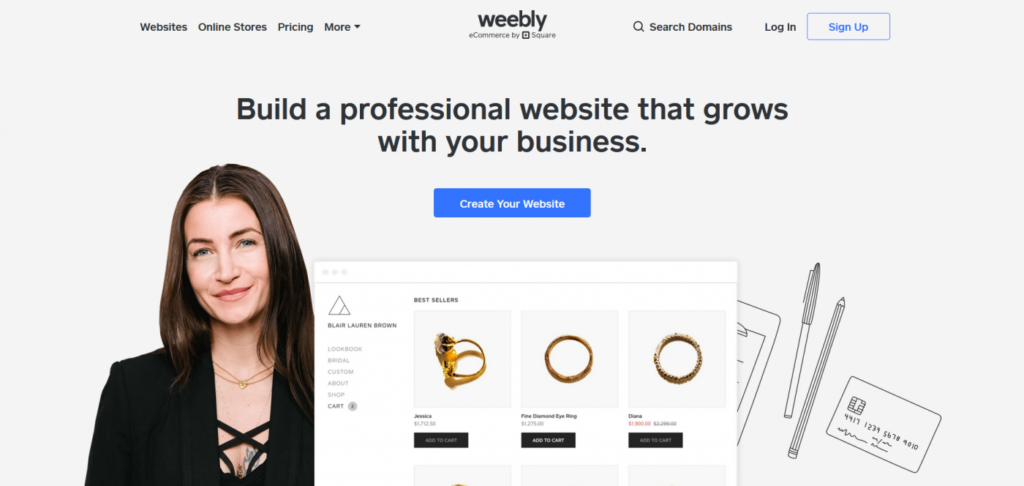
Weebly by Square is the #1 option for first-time site builders and e-commerce enterprises.
For many years, freelancers, small business owners, and solopreneurs have preferred it because of its inexpensive subscription plans and free plans.
However, price is only one factor to consider; we also admire Weebly’s user-friendly interface, which makes the e-commerce platform perfect for beginners.
If you’ve never built a website before, Weebly is a good place to start. Similar website builders with free themes and templates are provided by the majority of e-commerce providers; however, their prices are usually higher or they lack a free plan.
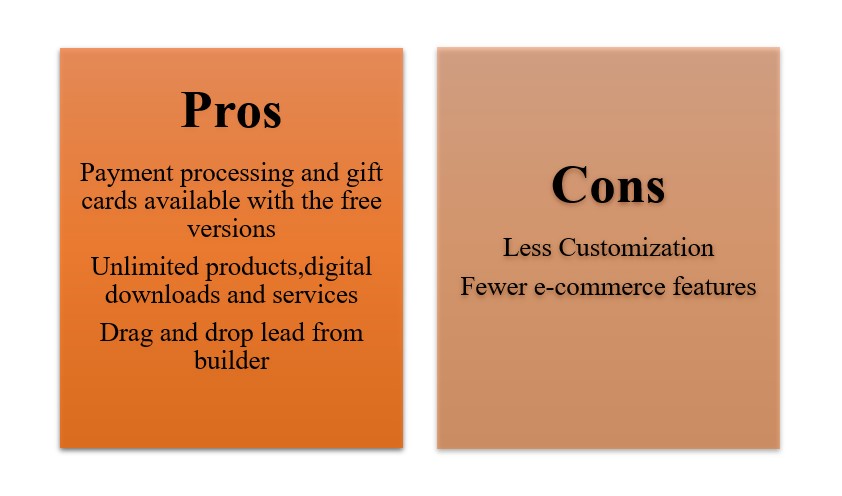
Square Online
Square Online caters to entrepreneurs and small companies of all sizes.
it’s an effective solution for businesses that have a physical location, such as food trucks, cafes, retail pop-ups, and storefronts.
However, you can get rid of the spreadsheet and stop worrying about managing quantities across your online and brick-and-mortar store when you use Square Online’s integrated inventory management features.
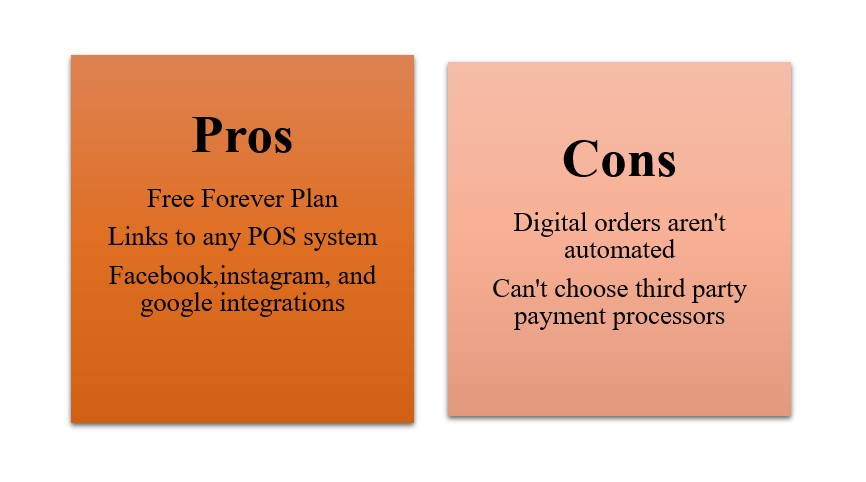
BigCommerce

BigCommerce is an e-commerce platform that is the best option for corporations, enterprises, and big businesses.
Its features for international commerce and tools for multichannel selling on social media and third-party marketplaces may also be advantageous to expanding small firms.
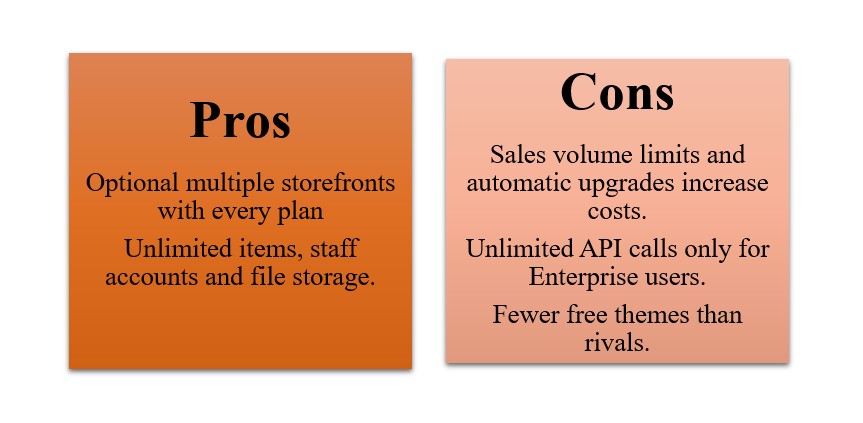
Which Things Consider When You Choose an E-Commerce Platform
Methods of payment
The platform should accept a wide range of payment methods, including Shop Pay, Apple Pay, credit and debit cards, and more to cater to varying consumer preferences.
Inventory Management
The platform you choose for inventory management may need to have robust capabilities like bulk import/export, stock alerts, and support for various product variants, depending on the size and complexity of your catalog.
Integrations
You probably want your e-commerce platform to work with other software that you use, such as accounting software, email marketing services, or customer relationship management systems.
Verify whether the platform is compatible with these integrations.
Mobile Responsiveness
Your e-commerce platform needs to offer a smooth experience on all devices given the increasing number of mobile buyers. Verify if the platform provides themes or templates that are optimized for mobile.
Customization Options
You can build a website that accurately represents your brand using the best e-commerce platforms for small enterprises. Custom storefronts, unique layouts, and the flexibility to add or delete on-page features are all included in this.
Security
Security is essential in e-commerce since you will be managing sensitive consumer data, such as credit card information.
Verify that the platform you’ve selected offers SSL certificates and complies with PCI-DSS.
Conclusion
The needs and objectives of your small business will determine which e-commerce platform is appropriate for you.
There is a good solution out there for you, regardless of your priorities—budget, features, or anything else.
However, selecting a platform that is user-friendly and expands with your organization is crucial.


